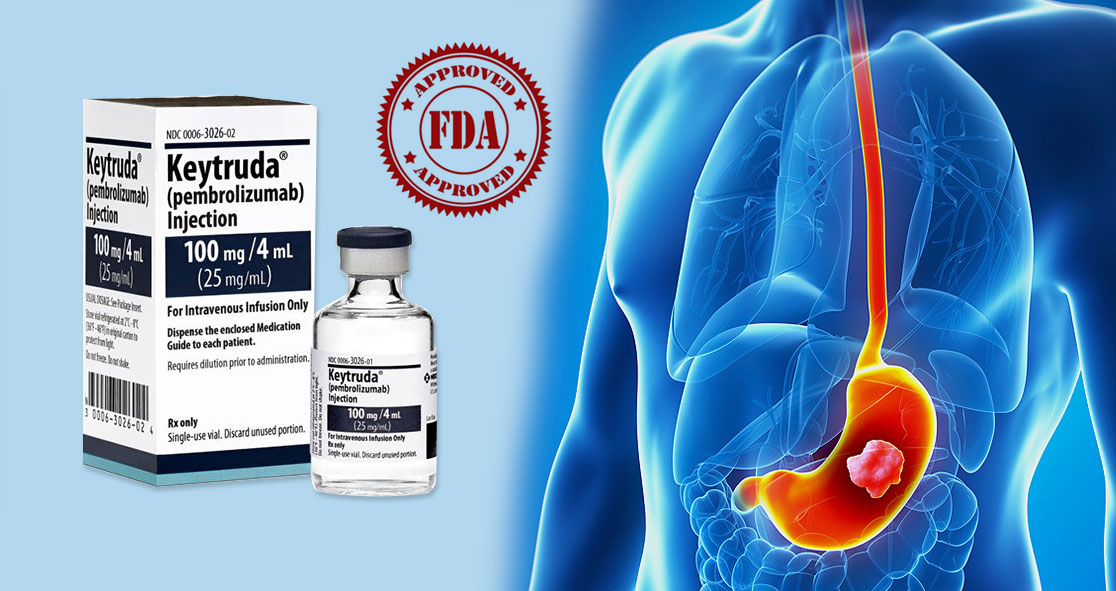On May 5, 2021, the U.S. Food and Drug Administration (FDA) granted accelerated approval to Keytruda (pembrolizumab) in combination with trastuzumab (Herceptin), fluoropyrimidine- and platinum-containing chemotherapy for the treatment of HER2 positive gastric cancer.
The combination is approved for the first-line treatment of patients with locally advanced unresectable or metastatic HER2 positive gastric or gastroesophageal junction (GEJ) adenocarcinoma, according to the FDA.
The approval was based on data from a pre-specified interim analysis of 264 patients enrolled in the clinical trial, which showed that the combination of pembrolizumab, trastuzumab, and fluoropyrimidine- and platinum-containing chemotherapy showed an overall response rate (ORR) of 74%.
Pembrolizumab, sold under the brand name Keytruda, is a humanized antibody used in cancer immunotherapy. Merck & Co., a New Jersey-based multinational pharmaceutical company, manufactures Keytruda.
The FDA wrote on its website, “To be eligible for enrollment, patients needed to be at least 18 years of age, have previously untreated histologically or cytologically confirmed locally advanced unresectable or metastatic gastric or GEJ adenocarcinoma, HER2 positivity, measurable disease per RECIST v1.1 criteria, an ECOG performance status of 0 or 1, and a life expectancy of at least 6 months.”
“Participants were randomized 1:1 to receive either pembrolizumab at 200 mg or placebo every 3 weeks, in combination with trastuzumab and either fluorouracil plus cisplatin or capecitabine plus oxaliplatin,” it added.
“The primary end points of the trial were progression-free survival and overall survival. Key secondary end points included ORR and DOR per RECIST v1.1 criteria and blinded independent central review, as well as safety.,” the agency wrote. “Health-related quality of life serves as an exploratory end point of interest.”
In the clinical trial, the safety profile observed in patients who received the immunotherapy proved to be consistent. Adenocarcinomas of the gastroesophageal junction (GEJ) are defined as tumors that cross the most proximal extent of the gastric folds regardless of where the bulk of the tumor lies, according to the World Health Organization (WHO).





















